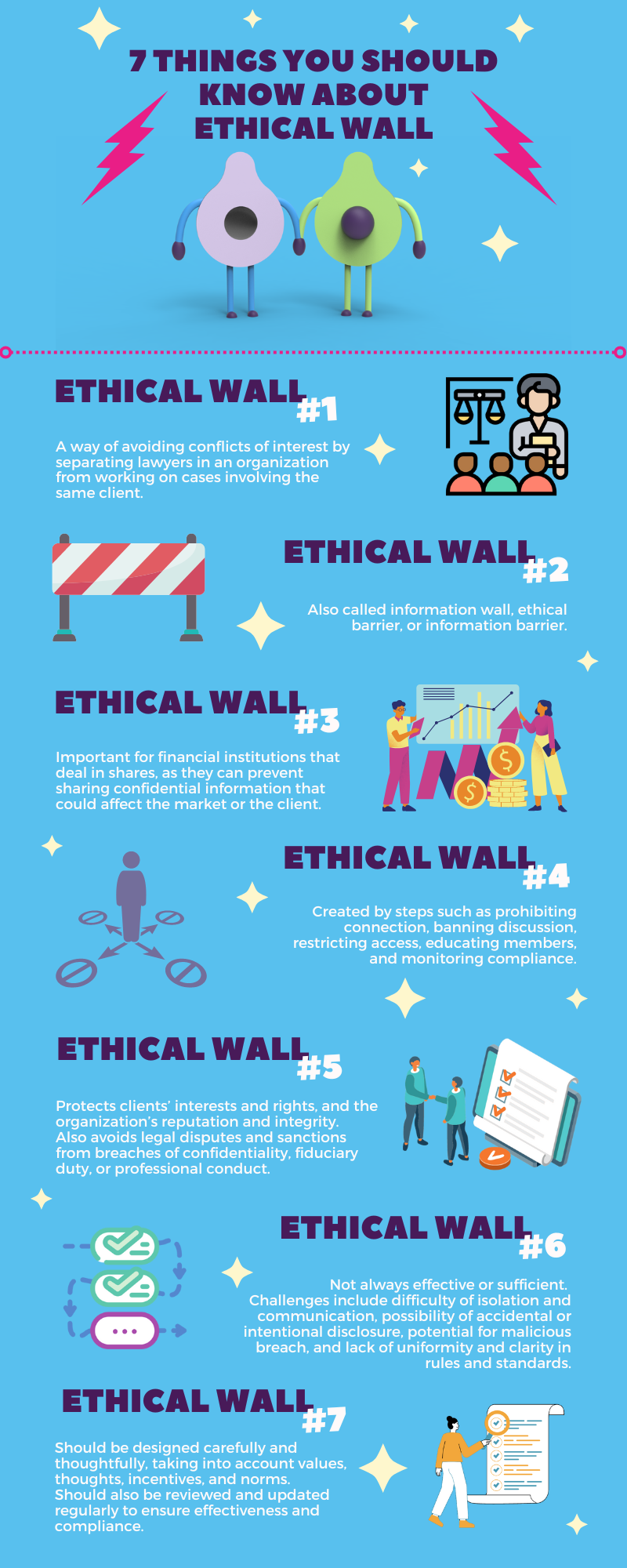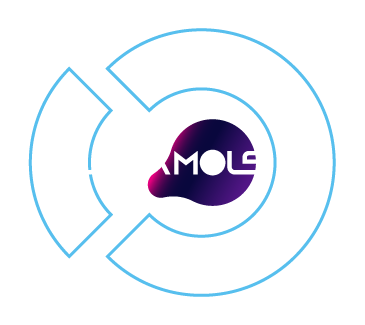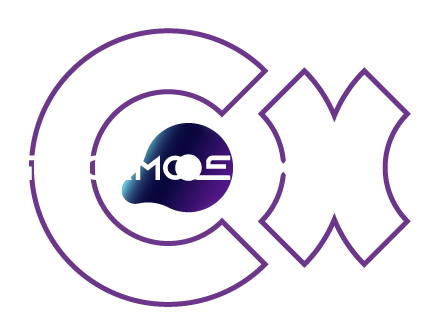An Ethical Wall is a way of preventing a conflict of interest from affecting a client by making sure that some lawyers in an organization do not work on any case involving that client. It can also be called an information wall, ethical barrier, or information barrier. These methods are especially important for financial institutions that buy and sell shares for themselves and for others. For example, if a bank is advising a company on a merger deal, it should not share any confidential information with its own traders who might profit from buying or selling the company’s shares.
To create an ethical wall, an organization needs to take several steps, such as:
- Prohibiting certain lawyers and paralegals from having any connection with a particular matter
- Banning discussions with those individuals regarding that matter
- Restricting access to files and documents concerning the matter
- Educating all members of the organization about the separation of the lawyers and paralegals from the particular matter
- Monitoring and enforcing compliance with the ethical wall
Ethical walls are important because they help protect the interests and rights of clients, as well as the reputation and integrity of the organization. They also help avoid legal disputes and sanctions that might arise from breaches of confidentiality, fiduciary duty, or professional conduct.
However, ethical walls are not always effective or sufficient to prevent conflicts of interest or ethical violations. Some challenges include:
- The difficulty of ensuring complete isolation and communication among different groups or individuals within the same organization
- The possibility of accidental, inadvertent, or negligent disclosure of information across the ethical wall
- The potential for an intentional or malicious breach of the ethical wall by someone who wants to gain an advantage or harm another party
- The lack of uniformity and clarity in the rules and standards governing the use and implementation of ethical walls across different jurisdictions and contexts
Therefore, ethical walls should be designed carefully and thoughtfully, taking into account the explicit values, thoughts during judgment, incentives, and cultural norms of the organization and its members. They should also be reviewed and updated regularly to ensure their effectiveness and compliance with the relevant laws and regulations.
An example of breaches of ethical walls is :
- In 2021, the U.S. Attorney’s Office for the Southern District of New York (S.D.N.Y.) sought a special master to review the materials seized from Rudy Giuliani’s home, as part of an investigation into his dealings with Ukraine. The S.D.N.Y. took this step to avoid any appearance of impropriety, as Giuliani had previously served as the U.S. Attorney for the same district and had hired or worked with many of the current prosecutors and agents. The S.D.N.Y. also created an ethical wall to separate the team handling the Giuliani case from the rest of the office.
- Prince Jefri, the Sultan of Brunei’s brother, sued KPMG, an accountancy firm, for breaching his confidentiality. KPMG was working for the Brunei Investment Agency (BIA), which was investigating some transactions that involved the prince. KPMG had acted for the prince before on a different matter and had learned some confidential information about his personal finances. KPMG said that it did not have a continuing client relationship with the prince and that it had established an ethical wall to ensure that no information would be disclosed to the BIA. The High Court sided with the prince and issued an injunction, but the Court of Appeal overturned it. The case was sent to the House of Lords for further review.

In conclusion, ethical walls are useful tools for preventing and resolving conflicts of interest within organizations, but they also require careful planning, implementation, monitoring, and enforcement to ensure their effectiveness and compliance. One way to enhance the security and integrity of ethical walls is to use GuacamoleID’s touchless continuous authentication system, which continuously verifies the identity and access rights of users. GuacamoleID also provides audit logs that can help with future investigations and proof in case of any breach or dispute. GuacamoleID is a smart solution for protecting confidential information and maintaining ethical standards in any organization.
















